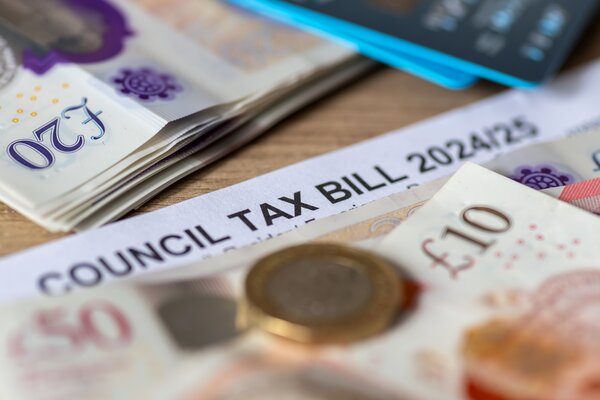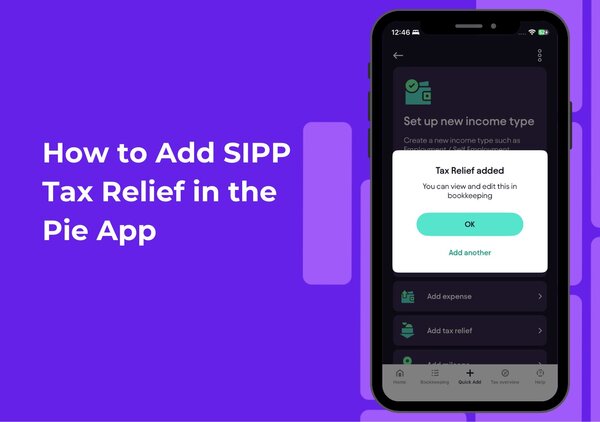Let’s Keep It Real
Each tax year, you get a Capital Gains allowance (£12,300 for 2022/23, dropping to £6,000 from April 2023) before tax kicks in.
In the UK, crypto is taxed in a similar way to other investments. When we talk about 'crypto taxed', it means that profits from buying, selling, or exchanging crypto assets are subject to specific tax rules set by HMRC.
Your crypto profits get taxed at either 10% (basic rate taxpayers) or 20% (higher/additional rate taxpayers) depending on your income. You may owe capital gains tax when you dispose of your crypto assets, including through sales, swaps, or spending.
All cryptocurrencies, NFTs, and tokens are considered 'crypto assets' by HMRC and fall under these same rules.
How Crypto Tax UK Works
Navigating crypto taxes doesn’t have to be as volatile as the market itself. Pie helps thousands track their crypto gains automatically, saving hours of spreadsheet headaches. Or if you’re just here to get to grips with it all, let’s break it down!
Every time you “dispose” of crypto, HMRC wants their share of your profits. You are required to pay taxes on profits from these disposals. Disposals include selling for pounds, swapping between cryptocurrencies, buying goods, or giving crypto away. The tax treatment depends on the type of transaction, such as selling, trading crypto, or spending.
Each disposal creates a taxable event where you’ll need to calculate if you’ve made a profit or loss. When calculating your profit or loss, make sure to include any transaction fees related to buying or selling crypto in your calculations.
The rules caught me out when I swapped Bitcoin for Ethereum last year. I hadn’t realised this counted as a disposal until my accountant pointed it out.

When Do You Pay Tax on Cryptocurrency?
The UK tax year runs from 6 April to 5 April the following year. If you’ve made crypto disposals, report them on your Self Assessment by the following 31 January. You may also owe tax when gifting or transferring crypto, depending on the circumstances.
If you’ve never filed a Self Assessment before, register with HMRC first – ideally by 5 October after the tax year ends.
Mining and staking rewards work differently. They’re usually subject to Income Tax rather than Capital Gains Tax. If you receive crypto as part of your employment, it is treated as employment income and must be reported accordingly. If you are frequently and systematically trading cryptoassets, your profits may be classified as trading income, which is taxed differently from capital gains. Some mining, staking, or airdrop rewards may also be categorized as miscellaneous income for tax purposes.
Airdrops might be taxable as income when received, then subject to Capital Gains Tax when sold. Some airdrops can be subject to airdrops income tax depending on how they are received. It’s a double tax
How to Calculate Your Crypto Tax
HMRC requires you to calculate your gain or loss on each disposal. The basic formula is: (Sale value) - (Purchase cost + fees) = Your gain or loss. Accurate tax calculations are essential for determining your taxable gain and capital gain on each transaction.
For crypto-to-crypto trades, you’ll need to know the pound sterling value at the time of the transaction.
When you’ve bought the same crypto multiple times, HMRC uses “pooling” rules to determine which coins you’re deemed to have sold.
The “same day rule” means purchases on the same day as a disposal are matched first, then coins bought within the next 30 days, then your general pool.
Keeping detailed records is crucial – dates, amounts, values in GBP, and what happened in each transaction. You should keep a tax report or crypto tax report for each tax year, summarizing your taxable gains and losses. You must report your net capital gains to HMRC, and these are summarized in the capital gains summary section of your Self Assessment.
If you have capital losses, they must be offset against gains in the same tax year, but can be carried forward to offset future capital gains.

Common Crypto Tax Mistakes to Avoid
Thinking crypto-to-crypto trades aren’t taxable. They absolutely are! Every swap creates a disposal of one asset and acquisition of another. Selling crypto assets or spending crypto on goods and services are also taxable events, as both are considered disposals that may trigger Capital Gains Tax.
Selling crypto, even when converting to fiat currency like GBP, is a taxable event that must be reported to HMRC. Forgetting about free tokens from airdrops or forks. HMRC might view these as taxable income.
Not keeping proper records. Without them, calculating your tax correctly becomes nearly impossible, and HMRC can demand records going back years.
Missing the Self Assessment deadline. Late filing penalties start at £100 and increase the longer you delay. Assuming small trades don’t matter. Lots of small trades can add up, potentially pushing you over your annual allowance.
Reducing Your Crypto Tax Liability
Use your annual Capital Gains allowance wisely. Consider spreading disposals across tax years if you’re close to the limit. If your trading or miscellaneous income from crypto is below the trading allowance threshold, you may not need to report it.
Look into tax-loss harvesting. If you’ve made losses, you can offset these against your gains to reduce your tax bill.
Consider holding investments for longer. While the UK doesn’t offer reduced rates for long-term gains, it can help with tax planning. Strategic planning can help you avoid paying tax unnecessarily, as long as it is done within the law.
If you’re sitting on large unrealised gains, think carefully about when to crystallise them – perhaps in a year when your other income is lower.
Losses can be carried forward to future tax years if you report them to HMRC, even if you have no tax to pay that year.

HMRC Compliance and Reporting
HMRC has been getting serious about crypto. Since 2019, they’ve been requesting data from UK exchanges to identify potential tax evaders. Exchanges are required to share transaction data with HMRC to ensure tax compliance.
You must declare your crypto gains on your Self Assessment tax return under the Capital Gains section.
For significant crypto activity, you might need to provide a detailed breakdown in the “Additional Information” section. Keep all your records for at least five years after the submission deadline for your tax return.
The penalties for incorrect returns can range from 30% to 100% of the tax due, depending on whether HMRC thinks you were careless or deliberately hiding information.
In some DeFi, staking, or lending scenarios, disposals related to beneficial ownership may be treated differently for tax purposes, which could affect your Capital Gains Tax obligations.
Final Thoughts
Crypto tax doesn't have to be scary, but it does require attention to detail and good record-keeping. As the crypto world evolves, so too will the tax rules. Staying informed about HMRC's latest guidance is essential.
If you're dealing with complex situations like DeFi, staking, or mining, getting professional advice could save you money and stress. Remember, HMRC is increasingly sophisticated in tracking crypto assets, so it's always better to get your taxes right the first time.

Pie.tax: Simplifying Crypto Tax UK
Getting your crypto taxes right shouldn’t require a computer science degree or an expensive accountant. The UK’s first personal tax app makes crypto taxation straightforward for everyone.
Pie connects directly to your exchanges and wallets, automatically tracking transactions and calculating your capital gains with precision. The app tracks transactions involving both crypto and fiat currency, ensuring accurate reporting. Pie also helps users calculate and report their crypto capital gains tax and UK capital gains tax obligations. No more spreadsheet nightmares or manual calculations.
Our app understands all the quirky HMRC rules about crypto taxation, from the pooling method to the same-day rules. We handle everything from simple Bitcoin trades to complex DeFi transactions.
When it’s time to file, you can generate HMRC-ready reports with a single click, making Self Assessment season much less stressful. We keep your records secure for the full five years HMRC requires.
Curious to see how it works? Take a look at the UK’s first personal tax app and discover how easy crypto tax can be.

Steps to Enter Your Capital Gains Details for Self-Assessment
Managing your capital gains income effectively is essential for accurate tax reporting and financial planning. Follow these detailed instructions to keep your income accounts up-to-date:
Tap ‘Quick Add’ on the navigation bar, then select ‘Create Income Type’ to get started. Choose ‘Capital Gains’ and follow the prompts to enter your asset details.Add Your Capital Gains in the Pie App

Choose ‘Capital Gains’, select your asset type, and enter your gain or loss with any expenses. Review your summary, declare child benefits if needed, and hit ‘Submit to HMRC’ from Tax Overview.Submit Your Capital Gains to HMRC












